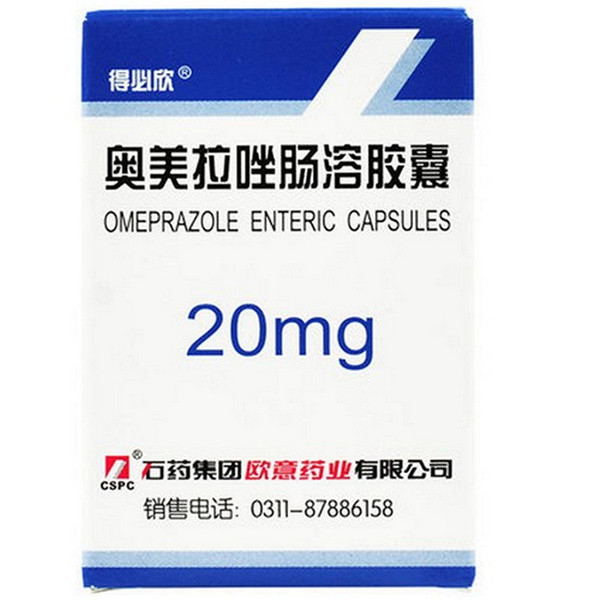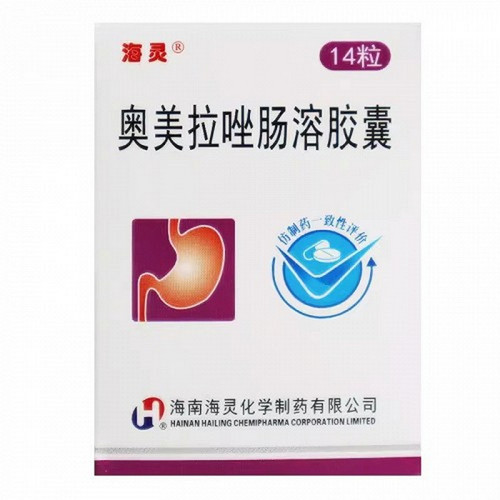Product Overview
[Drug Name]
Trade Name: Debixin
English Name: Omeprazole Enteric-coated Capsules
Chinese Pinyin: Aomeilazuo Changrong Jiaonang
[Ingredients]
Omeprazole
[Properties]
This product contains white or off-white enteric-coated granules.
[Indications]
It is indicated for gastric ulcers, duodenal ulcers, stress ulcers, reflux esophagitis, and Zollinger-Ellison syndrome (gastrinoma).
[Dosage and Administration]
Oral administration; do not chew.
[Adverse Reactions]
This product is well tolerated. Common adverse reactions include diarrhea, headache, nausea, abdominal pain, flatulence, and constipation. Rarely, elevated serum aminotransferases (ALT, AST), rash, dizziness, drowsiness, and insomnia may occur. These adverse reactions are mild and resolve spontaneously. Long-term treatment may cause gastric mucosal cell hyperplasia and atrophic gastritis in some cases.
[Contraindications] This product is contraindicated in patients who are allergic to it, those with severe renal insufficiency, and infants. [Precautions] (1) When treating gastric ulcers, the possibility of ulcerative gastric cancer should be ruled out first, because this product can relieve its symptoms and thus delay treatment. (2) Use with caution in patients with hepatic and renal insufficiency. (3) This product is an enteric-coated capsule. Be careful not to chew it when taking it, so as to avoid premature release of the drug in the stomach and affecting the efficacy. [Use in special populations] Precautions for children: This product is contraindicated in infants and young children. Precautions for pregnancy and lactation: Although this product has no teratogenic effect in animal experiments, it should generally not be used by pregnant women, and should also be used with caution in lactating women. Precautions for the elderly: This is not yet clear. [Drug interactions] This product can delay the elimination of drugs metabolized by the liver in the body, such as diazepam, phenytoin sodium, warfarin, nifedipine, etc. When this product is used together with the above drugs, the dosage of the latter should be reduced.
[Pharmacological Action]
Proton pump inhibitor. This drug is a lipid-soluble, weakly alkaline drug that is easily concentrated in acidic environments. Therefore, after oral administration, it is specifically distributed in the secretory tubules of the gastric mucosal parietal cells. In this highly acidic environment, it is converted into its active form, the sulfenamide. It then irreversibly binds to the sulfhydryl group of the H+, K+-ATPase (also known as the proton pump) in the parietal cell secretory membrane via a disulfide bond, forming a sulfenamide-proton pump complex. This inhibits the enzyme's activity and blocks the final step of gastric acid secretion. Therefore, this drug has a strong and long-lasting inhibitory effect on gastric acid secretion caused by various causes.
[Storage]
Store in a dry, airtight container protected from light.
[Specification]
20 mg
[Packaging]
Plastic bottle, 14 tablets/bottle.
[Expiry Period]
24 months.
[Approval Number]
National Medicine Standard No. H20046430
[Manufacturer]
Company Name: CSPC Pharmaceutical Group Ouyi Pharmaceutical Co., Ltd.








